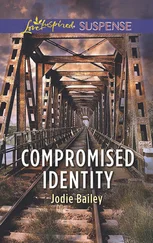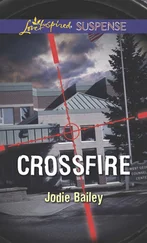“Wouldn’t someone notice this sort of irrational fear?” Jordan asked.
“Probably not. A child who suffers from PTSD has made unsuccessful attempts to get help, and as the victimization continues, he stops asking for it. He withdraws socially, because he’s never quite sure when interaction is going to lead to another incident of bullying. He probably thinks of killing himself. He escapes into a fantasy world, where he can call the shots. However, he starts retreating there so often that it gets harder and harder to separate that from reality. During the actual incidents of bullying, a child with PTSD might retreat into an altered state of consciousness-a dissociation from reality to keep him from feeling pain or humiliation while the incident occurs. That’s exactly what I think happened to Peter on March sixth.”
“Even though none of the kids who’d bullied him were present in his bedroom when that email appeared?”
“Correct. Peter had spent his entire life being beaten and taunted and threatened, to the point where he believed he would be killed by those same kids if he didn’t do something. The email triggered a dissociative state, and when he went to Sterling High and fired shots, he was completely unaware of what he was doing.”
“How long can a dissociative state last?”
“It depends. Peter could have been dissociating for several hours.”
“Hours?” Jordan repeated.
“Absolutely. There’s no point during the shootings that illustrates to me conscious awareness of his actions.”
Jordan glanced at the prosecutor. “We all saw a video where Peter sat down after firing shots in the cafeteria and ate a bowl of cereal. Is that meaningful to your diagnosis?”
“Yes. In fact, I can’t think of clearer proof that Peter was still dissociating at that moment. You’ve got a boy who is completely unaware of the fact that he’s surrounded by classmates he’d either killed, wounded, or sent fleeing. He sits down and takes the time to calmly pour a bowl of Rice Krispies, unaffected by the carnage around him.”
“What about the fact that many of the children Peter fired at were not part of what could commonly be called the ‘popular crowd’? That there were special-needs children and scholars and even a teacher who became his victims?”
“Again,” the psychiatrist said, “we’re not talking about rational behavior. Peter wasn’t calculating his actions; at the moment he was shooting, he had separated himself from the reality of the situation. Anyone Peter encountered during those nineteen minutes was a potential threat.”
“In your opinion, when did Peter’s dissociative state end?” Jordan asked.
“When Peter was in custody, speaking to Detective Ducharme. That’s when he started reacting normally, given the horror of the situation. He began to cry and ask for his mother-which indicates both a recognition of his surroundings and an appropriate, childlike response.”
Jordan leaned against the rail of the jury box. “There’s been some evidence in this case, Doctor, that Peter wasn’t the only child in the school who was bullied. So why did he react this way to it?”
“Well, as I said, different people have different responses to stress. In Peter’s case, I saw an extreme emotional vulnerability, which, in fact, was the reason he was teased. Peter didn’t play by the codes of boys. He wasn’t a big athlete. He wasn’t tough. He was sensitive. And difference is not always respected-particularly when you’re a teenager. Adolescence is about fitting in, not standing out.”
“How does a child who is emotionally vulnerable wind up one day carrying four guns into a school and shooting twenty-nine people?”
“Part of it is the PTSD-Peter’s response to chronic victimization. But a big part of it, too, is the society that created both Peter and those bullies. Peter’s response is one enforced by the world he lives in. He sees violent video games selling off the shelves at stores; he listens to music that glorifies murder and rape. He watches his tormentors shove him, strike him, push him, demean him. He lives in a state, Mr. McAfee, whose license plate reads ‘Live Free or Die.’” King shook his head. “All Peter did, one morning, was turn into the person he’d been expected to be all along.”
Nobody knew this, but once, Josie had broken up with Matt Royston.
They had been going out for nearly a year when Matt picked her up one Saturday night. An upperclassman on the football team-someone Brady knew-was having a party at his house. You up for it? Matt had asked, even though he’d already been driving there when he asked her.
The house had been pulsing like a carnival by the time they arrived, cars parked on the curb and the sidewalk and the lawn. Through the upstairs windows, Josie could see people dancing; as they walked up the driveway, a girl was throwing up in the bushes.
Matt didn’t let go of her hand. They twined through wall-to-wall bodies, embroidering their path to the kitchen, where the keg was set up, and then back to the dining room, where the table had been tipped on its side to create a bigger dance floor. The kids they passed were not only from Sterling High, but other towns, too. Some had the red-rimmed, loose-jawed stare that came from smoking pot. Guys and girls sniffed at each other, circling for sex.
She didn’t know anyone, but that wasn’t important, because she was with Matt. They pressed closer, in the heat of a hundred other bodies. Matt slid his leg between hers while the music beat like blood, and she lifted up her arms to fit herself against him.
Everything had gone wrong when she went to use the bathroom. First, Matt had wanted to follow her-he said it wasn’t safe for her to be alone. She finally convinced him it would take all of thirty seconds, but as she started off, a tall boy wearing a Green Day shirt and a hoop earring turned too quickly and spilled his beer on her. Oh, shit, he’d said.
It’s okay. Josie had a tissue in her pocket; she took it out and started to blot her blouse dry.
Let me, the boy said, and he took the napkin from her. At the same time they both realized how ridiculous it was trying to soak up that much liquid with a tiny square of Kleenex. He started laughing, and then she did, and his hand was still lightly resting on her shoulder when Matt came up and punched him in the face.
What are you doing! Josie had screamed. The boy was out cold on the floor, and other people were trying to get out of the way but stay close enough to see the fight. Matt grabbed her wrist so hard that she thought it was going to snap. He dragged her out of the house and into the car, where she sat in stony silence.
He was just trying to help, Josie said.
Matt put the car into reverse and lurched backward. You want to stay? You want to be a slut?
He’d started to drive like a lunatic-running red lights, taking corners on two wheels, doubling the speed limit. She told him to slow down three times, and then she just closed her eyes and hoped it would be over soon.
When Matt had screeched to a stop in front of her house, she turned to him, unusually calm. I don’t want to go out with you anymore, she had said, and she got out of the car. His voice trailed her to the front door: Good. Why would I want to go out with a fucking whore, anyway?
She had managed to slip by her mother, feigning a headache. In the bathroom, she’d stared at herself in the mirror, trying to figure out who this girl was who had suddenly grown such a backbone, and why she still felt like crying. She’d lain in her bed for an hour, tears leaking from the corners of her eyes, wondering why-if she’d been the one to end it-she felt so miserable.
When the phone rang after three in the morning, Josie grabbed it and hung it up again, so that when her mother picked up, she would assume it had been a wrong number. She held her breath for a few seconds, and then lifted the receiver and punched in *69. She knew, even before she saw the familiar string of numbers, that it was Matt.
Читать дальше












